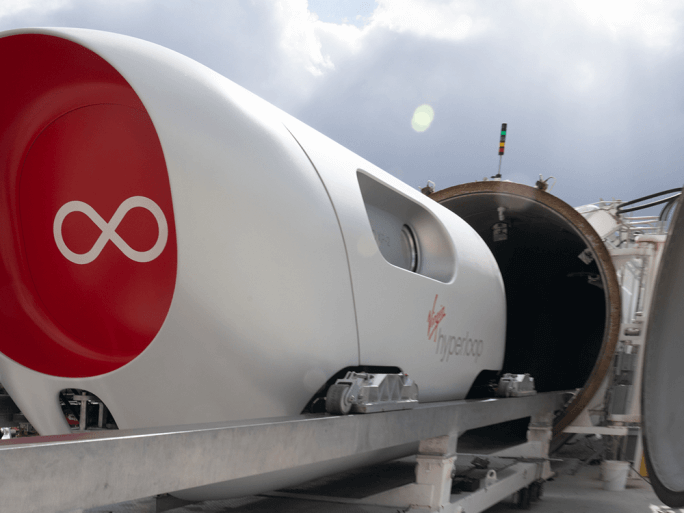In a surprising turn of events, Hyperloop One, the high-speed train company that once captivated imaginations with its ambitious concept of propelling individuals at hundreds of miles per hour through a vacuum, has ceased operations.
Founded on Elon Musk’s visionary idea, Hyperloop One aimed to revolutionize travel by significantly reducing journey times. Despite initial support from Virgin founder Richard Branson, who withdrew his backing last year, the company is set to terminate its remaining workforce by year-end, as reported by Bloomberg.The core of Hyper-loop One’s concept relied on magnetic levitation (maglev) technology, already in use in certain transport systems, enclosed within a vacuum tube. This innovative approach aimed to minimize friction and air resistance, enabling speeds of up to 700mph (1,127km/h) while promoting environmental sustainability compared to existing high-speed transport methods.Although Hyper-loop One successfully developed prototypes in the Nevada desert, the project encountered setbacks due to engineering challenges. The envisioned network of giant tubes spanning landscapes and urban areas posed logistical challenges, compounded by difficulties in accommodating turns, necessitating straight-line tube configurations.A pivotal moment occurred in 2020 when the company conducted a trial, marking the first successful passenger ride using hyperloop technology. During the 546-yard (500m) test run, the pod achieved a top speed of 107mph (172km/h). However, in 2022, Hyper-loop One shifted its strategy, redirecting focus from passenger transport to cargo. This transition resulted in significant job cuts, with over 100 announced initially and additional layoffs later in the year.The departure of Richard Branson, who served as the company’s chairman, further underscored the challenges faced by Hyperloop One. Additionally, the company grappled with controversy, as a former director, Ziyavudin Magomedov, was incarcerated in Russia on embezzlement charges.The Hyperloop concept itself originated from Elon Musk’s 2013 report, envisioning capsules propelled at high speed through a tube. Elon Musk, undeterred by Hyperloop One’s setbacks, continues his exploration of similar technology through his venture, The Boring Company, which focuses on underground tunnel systems.While Hyperloop One’s closure marks the end of a chapter, other companies worldwide persevere in developing and refining the hyper-loop concept. DP World, the Dubai-based majority stakeholder in Hyperloop One, is yet to provide official comments on the company’s closure.




